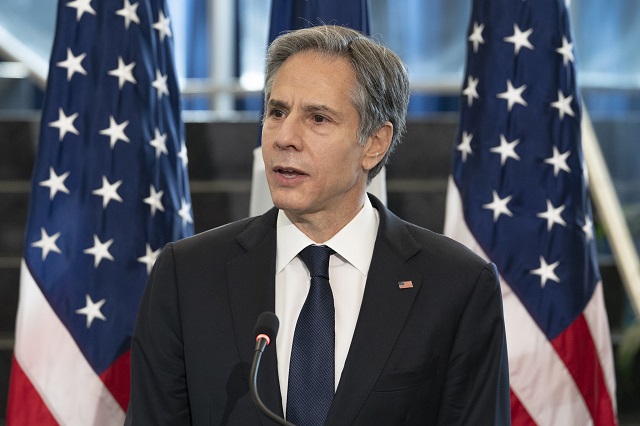Washington, D.C. – Violations of religious freedom and desecration of religious sites by Azerbaijan and Turkey, particularly relative to the Armenian people, were highlighted in the 2020 International Religious Freedom Report, released on Wednesday, May 12, 2021 by the United States Commission on International Religious Freedom (USCIRF) reported the Armenian Assembly of America (Assembly).
“Our promise to the world is that the Biden-Harris Administration will protect religious freedom around the world and combat all forms of religious discrimination,” said Secretary of State Antony J. Blinken.
The 108-page report recommended placing both Azerbaijan and Turkey on the “USCIRF Special Watch List” on account of egregious violations of religious freedom in both countries, including “recent violations committed amid renewed conflict over Nagorno-Karabakh and surrounding territories.”
In the section on Azerbaijan, the report detailed findings in the context of active fighting over Nagorno-Karabakh in late September 2020 that “prompted serious concerns about the preservation of Armenian places of worship and other religious sites in those areas,” including the Ghazanchetsots Cathedral in Shushi, which was “targeted and shelled” by Azerbaijani forces two times, “resulting in extensive damage to that building and possibly constituting a war crime.”
Read also
Despite the November 2020 ceasefire agreement, the report stated that the “recent vandalization and destruction of Armenian cemeteries and gravestones” by Azerbaijan were documented by media outlets.
Recommendations to the U.S. Government by the USCIRF include, among others, adding Azerbaijan on the U.S. Department of State’s Special Watch List for engaging in or tolerating severe violations of religious freedom pursuant to the International Religious Freedom Act (IRFA), and for the U.S. Congress to hold public hearings to investigate Azerbaijan’s religious freedom and broader human rights abuses.
Key findings in Turkey regarding religious freedom conditions “continued to follow a troubling trajectory,” according to the report. Religious sites, including places of worship and cemeteries, were “subject to vandalism, damage, and, in some cases, destruction, which the government regularly fails to prevent or punish.”
The report specifically cited two incidents in May 2020, in which “an individual attempted to set fire to an Armenian church” and another “scaled the gate of another Armenian church and tore down its cross.”
USCIRF recommendations included adding Turkey on the U.S. Department of State’s Special Watch List for engaging in or tolerating severe violations of religious freedom pursuant to the International Religious Freedom Act (IRFA), requiring a thorough review regarding the inclusion of objects that constitute the religious and cultural heritage of religious and ethnic minority communities – previously or currently residing within the territory of the Republic of Turkey – in any designated list of materials subject to import restrictions under a bilateral cultural property agreement between the United States and Turkey, and supporting cultural and educational exchanges that highlight the histories and contributions of those communities. In addition, recommendations called for the U.S. Congress to incorporate consideration of Turkey’s treatment of religious minorities and broader human rights issues into its continued evaluation of the U.S.-Turkey bilateral relationship.
Speaking during the U.S. Department of State press conference, Secretary Blinken stated that “religious freedom is a human right” and noted that the report, which details the status of religious freedom in almost 200 countries and territories, “reflects the collective effort of hundreds of American diplomats around the world.”
Secretary Blinken remarked that the document, which underscores U.S. actions to support religious freedom worldwide, reflects on religious freedom as a “key element of an open and stable society.”
“Whenever human rights are denied, it ignites tension and it breeds division,” he continued. He noted that religious freedom is a right that is still out of reach for a number of countries.
“We remain deeply concerned about the plight of minority communities within Turkey as well as Azerbaijan’s ongoing destruction of Armenian cultural and religious heritage sites, including reports that Azerbaijan is using Armenian gravestones to build roads,” said Assembly Executive Director Bryan Ardouny. “In addition, we urge the Administration and Congress to take swift action regarding Azerbaijan’s ongoing aggression against the Armenian people, including the news today that Azerbaijan violated Armenia’s southeastern border when its forces advanced several miles into Armenia’s Province of Syunik,” Ardouny concluded.
Established in 1972, the Armenian Assembly of America is the largest Washington-based nationwide organization promoting public understanding and awareness of Armenian issues. The Assembly is a non-partisan, 501(c)(3) tax-exempt membership organization.
Armenian Assembly of America



















































